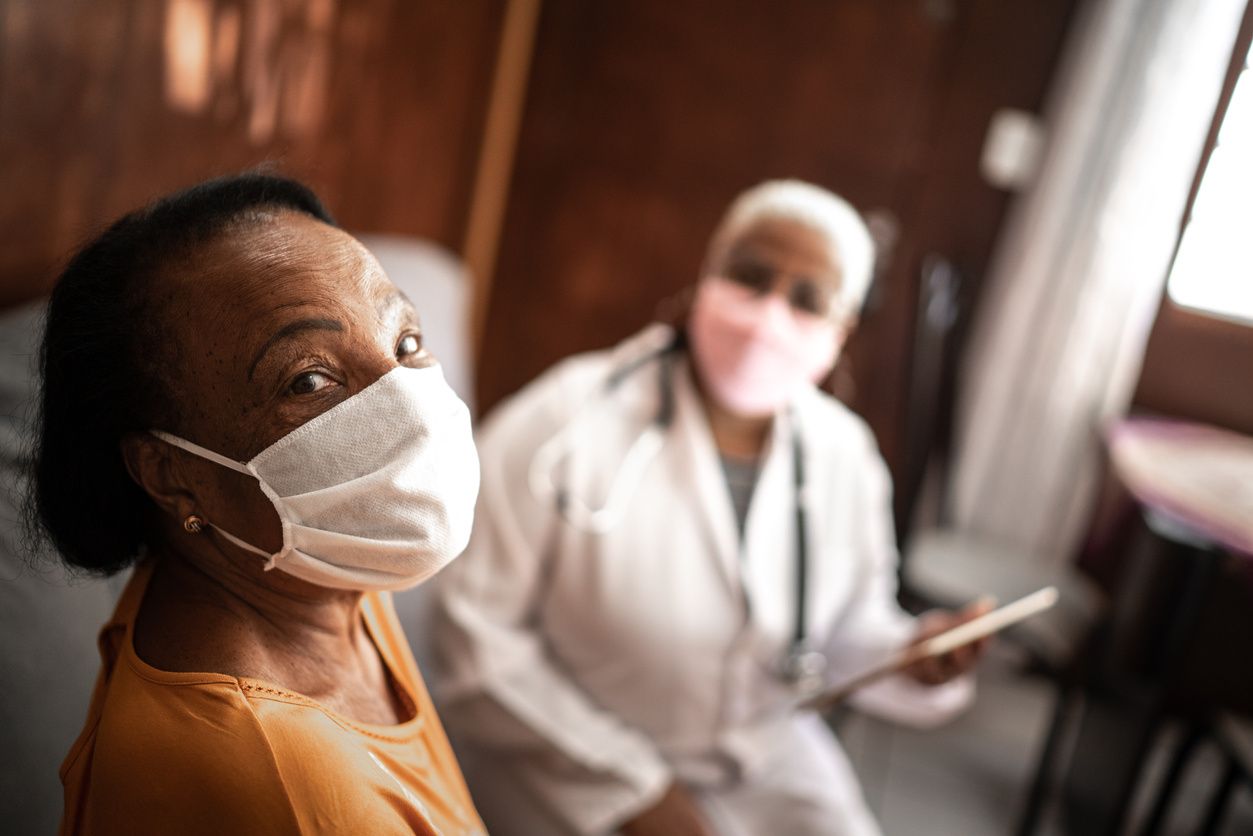As we age, so do our immune systems, making it increasingly hard for them to fight off infections. People living with diabetes have the added challenge of working to control blood sugar levels while trying to stay healthy.
And staying healthy is essential these days not only for ourselves, but also for our loved ones and the broader community, which includes the health care systems that support us all. This means it's even more important that everyone, especially adults living with diabetes, stay up to date with recommended vaccinations.
Diabetes and the Risk of Vaccine-Preventable Diseases
HealthyWomen.org recently interviewed Dawn Davis, MD, associate professor of endocrinology, diabetes and metabolism at University of Wisconsin School of Medicine and Public Health about the importance of vaccines for women living with diabetes. She said that these women, even when their disease is well controlled, have an increased risk of developing serious complications from some infections.
"For example, influenza (flu) viruses have a higher risk of serious complications, including hospitalization and even death, in patients with diabetes," Davis said. In recent seasons, about 30 percent of adults who were hospitalized for flu had diabetes, according to the Centers for Disease Control and Prevention (CDC). Fortunately, flu vaccination has been associated with a reduction in these hospitalizations among people with diabetes.
"People with diabetes are also at higher risk of getting infections due to changes in their immune system," said Davis. "Diabetes can result in inflammation (swelling) and elevated blood sugars that can lower normal immune responses and make it easier for infections to spread within the body."
According to the CDC,adults living with type 1 or type 2 diabetes also have higher rates of hepatitis B, a contagious liver disease that results from infection with the hepatitis B virus. Outbreaks of hepatitis B associated with blood glucose monitoring procedures such as sharing of measuring sticks, finger stick devices, and syringes, have occurred among people with diabetes.
People living with diabetes are also at an increased risk for death from pneumonia (lung infection), bacteremia (blood infection) and meningitis (infection of the lining of the brain and spinal cord).
What vaccines are most important?
There are many vaccines out there, so how do we know which ones are the most important ones for women living with diabetes?
Vaccines are recommended for adults based on age, health conditions, job and other factors. CDC publishes Recommended Adult Immunization Schedule by Medical Condition and Other Indications, United States, 2020, which specifies what vaccines are important by condition and age group.
Mainly, women living with diabetes should be certain they are up to date with the following vaccines:
- Influenza vaccine to protect against seasonal flu (needed every year)
- Pneumococcal vaccine to protect against serious and even life-threatening infections of the lungs, blood, or covering of the brain.
- Tdap vaccine to protect against tetanus, diphtheria and pertussis (whooping cough)
- Hepatitis B vaccine to protect against hepatitis B
- Zoster vaccine to protect against shingles (only recommended for adults 50 and older)
Vaccines are one of the safest ways to protect your health
Exercising and eating right are keys to staying healthy with diabetes, but vaccines may provide another layer of protection. They are one of the safest ways you can protect your health, even if you are taking prescription medications.
"I always try to reassure patients that vaccines are safe and effective," Davis said. "If side effects from a vaccine occur (which happens in a small number of people), they are almost always less problematic than getting the infection itself. I try to ask about their specific concerns so that we can talk over the medical information related to their concerns. In many cases, we can overcome a concern related to misinformation or misconceptions by talking it through."
Davis encourages women living with diabetes to talk through this topic with their health care provider so they have the chance to learn more about vaccines and how they can improve their overall health.
Most health insurance plans cover these recommended vaccines. Check with your insurance company for information and to find health care providers covered by your plan. If you do not have health insurance, visit www.healthcare.gov to see what options are available.
"In short, if we can prevent risk for patients by giving them a safe, effective vaccine then this is one way to help them live longer, healthier lives with diabetes," Davis said.
Additional Resources:
CDC. Vaccine Information for Adults. Diabetes Type 1 and Type 2 and Adult Vaccination. May 2016. https://www.cdc.gov/vaccines/adults/rec-vac/health-conditions/diabetes.html.
Immunization Action Coalition. Vaccinations for Adults with Diabetes. June 2018. https://www.immunize.org/catg.d/p4043.pdf.
HealthMap Vaccine Finder. https://vaccinefinder.org/.
CDC. Information Series for Adults. 3 Important Reasons for Adults to Get Vaccinated. March 2020. https://www.cdc.gov/vaccines/hcp/adults/downloads/fs-three-reasons.pdf


